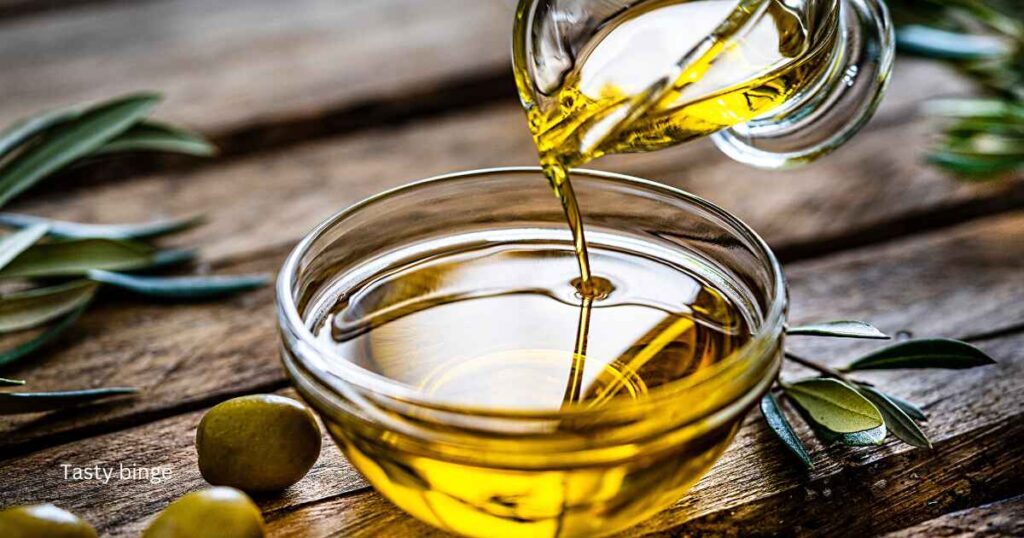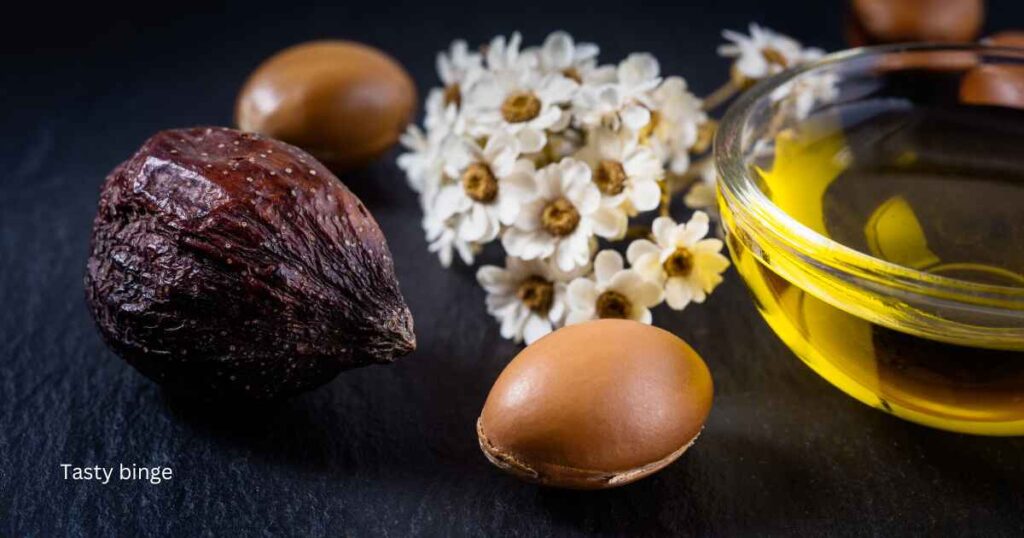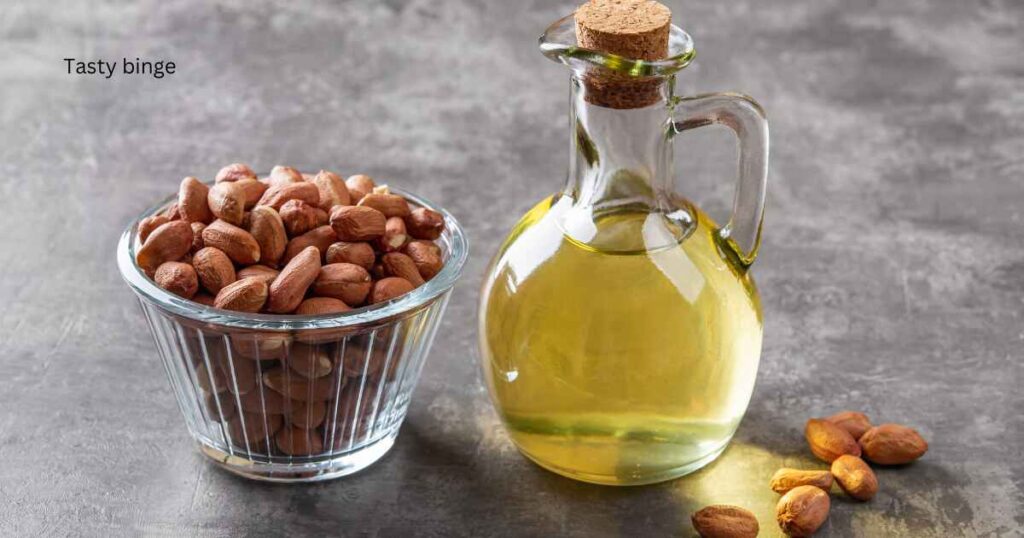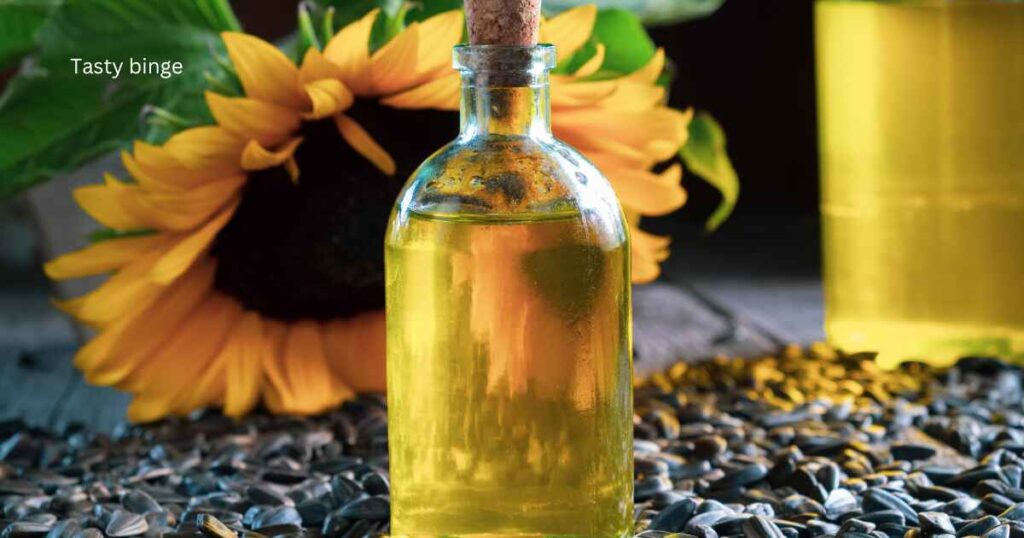Is oil on salad healthy?: Salad is an excellent addition to any balanced diet. Most store-bought salad dressings contain added sugars, preservatives and artificial flavors that can reduce the health benefits of your dish.
It’s easy to make your own salad dressings at home and a more cost-effective option than buying them in the store. It can also give you better control over what you put on your plate.
You can easily make 8 healthy and simple salad dressings at home. This easy salad dressing can also be used as a marinade for roasted vegetables, meat or poultry. You already have the ingredients on hand.
Balsamic Vinaigrette can be made in minutes with just five ingredients. This salad dressing is versatile and has a sweet-salty flavor.
This avocado lime dressing is creamy, cool and refreshing. It’s excellent for salads or as a dip with fresh vegetables.
Avocados are a good source of monounsaturated fatty acids that may boost HDL cholesterol (good cholesterol). This tasty, tart salad dressing will brighten your favorite salads or vegetable dishes.
The zesty citrus flavor is perfect for salads with a simple dressing that needs a little extra zip. This creamy, homemade dressing is slightly sweet and ideal for adding depth to your favorite savory dishes. [Is oil on salad healthy?]
7 best oil is mainly used for salads
- Extra Virgin Olive Oil
- Walnut Oil
- Argan Oil
- Coconut Oil
- Peanut Oil
- Macadamia Nut Oil
- Sunflower Oil
1. Extra Virgin Olive Oil
Numerous studies confirm that the Mediterranean diet reduces the risk of stroke and heart disease. Dietary benefits are likely from various sources, but generous olive oil consumption is a significant contributor.
Regardless of its type, olive oil is rich in monounsaturated fats, with about 75% of it by volume. Monounsaturated fatty acids can lower “bad” LDL levels when substituted for saturated dietary fat.
Olive oil’s antioxidant and anti-inflammatory qualities are credited with its health benefits. Observational studies have found a connection between higher consumption of olive oil and lower risk of heart disease, cancers, dementia, etc.
The phenols in the oil are protected by this process. Olive oils that are highly processed and regular lose these chemicals. Small laboratory experiments indicate that higher concentrations of phenols could provide additional antioxidant effects. [Is oil on salad healthy?]

2. Walnut Oil
The single-seeded walnut is native to parts of Central Asia and the Mediterranean. It is a rich source of omega-3 fats and antioxidants. Plant sterols are also present. Its surface is very similar to the structure of a human brain.
This has been called “brain food,” as it also helps boost brain health. Walnuts are vital in various tasty treats, such as breakfast cereals and desserts.
The oil from walnuts is used in a variety of ways. Commercially, there are two types: cold-pressed crude and refined oil. Organic walnut oil is more expensive because it contains most of the essential nutrients for our health.
Refined oil is usually cheaper and has fewer essential nutrients. The refined oil contains chemical additives. Only pure walnut oils improve brain functions to a significant level. [Is oil on salad healthy?]
Read Also: Which salad can be eaten at night?
3. Argan Oil
Moroccans have been using argan oil for centuries, not just because it has a subtle, nutty taste but also due to its many health benefits.
The kernels of argan fruit are used to produce this naturally occurring plant oil. Although originally from Morocco, Argan oil is used worldwide for culinary, cosmetic, and medicinal purposes.
This article discusses 12 of the health benefits of argan oil. Argan oil is made up of fatty acids and several phenolic compounds.
Argan oil is mainly composed of oleic, linoleic and palmitic acids. Argan oil is a rich source of Omega-6. Linoleic Acid makes up approximately 29-36%.
Argan oil contains oleic acid, which is a healthy fat. Oleic acid, also found in olive oil, positively affects the heart.
Argan oil also contains vitamin E, essential for healthy hair, skin, and eyes. This vitamin has strong antioxidant properties. [Is oil on salad healthy?]

4. Coconut Oil
Coconut oil can have many benefits, including reducing stress, controlling blood sugar, and increasing good cholesterol. More research is needed to determine the effects of coconut oil usage.
Coconut oil is used in many packaged products and by many consumers. Coconut oil is used in many products, such as fried food, sweets and shampoos.
Coconut oil contains more than 80%Trusted Sources of saturated fat. Some expertsTrustedSource have associated saturated fats with cardiovascular and other diseases.
The Dietary Guidelines for Americans recommend limiting saturated fats to less than 10%Trusted Source a day’s calorie. The em>2015-2020 Dietary Guidelines for Americans/em> recommend limiting consumption of saturated fats to a maximum of 10% (Appendix 7) of a day’s calorie intake.
Learn more about the coconut oil controversy and whether you should include it in your diet. Coconut Oil is derived from the fruit (nut) of the palm coconut. It contains medium-chain fats, such as capric acid and caprylic acids.
Coconut oil contains between 52% and 85% of medium-chain fatty acid. When applied, it has a moisturizing effect. [Is oil on salad healthy?]
5. Peanut Oil
It has many health benefits. For example, it is an excellent source of vitamin E. However, it has some drawbacks. It’s high in omega-6 pro-inflammatory fatty acids.
It isn’t easy to choose the best cooking oil for your health when so many options are available. Peanut oil is widely used for cooking, particularly when frying food. Peanut oil has many health benefits but also some serious drawbacks.
Peanut oil is also known as groundnut or arachis oil. It’s a vegetable oil made from edible seeds from peanut plants.
Although the peanut plant blooms above ground, it is underground that the peanuts or seeds actually grow. The peanut is also called groundnut.
Peanuts are sometimes grouped together with nuts such as walnuts and almonds. However, they are legumes belonging to the peas and beans family. Peanut oil has various flavors, from sweet and mild to intense and nutty. [Is oil on salad healthy?]

6. Macadamia Nut Oil
Macadamia is a healthy cooking oil. Macadamia oils may have health benefits for your heart, hair and skin. Macadamia trees are native to Australia. Macadamia oils are liquids at room temperature, similar to olive oils. This oil is used in cooking and in health and beauty products.
Macadamia oils are rich in nutrients such as potassium and healthy fatty acids. Many people are convinced that macadamia has many health benefits.
This article discusses three ways to use macadamia nut oil and the potential health benefits.Macadamia oils can be substituted for other oils when cooking. It is ideal for grilling, sautéing and roasting.
Macadamia oil is mild in flavor and can be used as a base for salad dressings or marinades.Many skin care products contain macadamia oils, but you can apply them directly to your skin.
Test the oil first on a small patch of skin. Macadamia is generally safe, but some people can develop a rash if they apply it directly to their skin.
Macadamia oil should not be used by people with allergies to tree nuts. Macadamia oil is said to have health benefits. Some of these benefits include moisturization, wrinkle prevention and skin damage. [Is oil on salad healthy?]
Read Also: Can I eat salad for dinner every day?
7. Sunflower Oil
The seeds of sunflower plants are used to press the oil. The oil contains a high amount of linoleic, an essential fatty acid.
Sunflowers that contain a high amount of oleic acids are often grown. High-oleic sunflower oil is the oil derived from these plants. This oil is used in the diet as a source of polyunsaturated fatty acids.
Sunflower oil is used to prevent heart disease and lower cholesterol. Sunflower oil is used to treat high cholesterol and eczema.
It can also treat dry lips, skin dryness and other conditions. However, there is little scientific evidence that supports these uses.
The information provided here is intended to complement, not to replace, the advice of your doctor or healthcare provider. It does not cover all possible uses, interactions, or adverse effects. The information provided may not apply to your particular health situation.
You should never delay seeking medical advice or ignore it because you read something on WebMD. Always consult your doctor before changing your treatment plan.
stopping or starting any prescribed medication, or making any other changes to your medical care. [Is oil on salad healthy?]

Conclusion:
Adding oil to salads can be healthy if you choose oils rich in nutrients, such as extra virgin olive or avocado oil. These oils are rich in essential fatty acids and aid the absorption of fat-soluble vitamins
. To avoid excessive calories, you should be aware of the portion sizes. Oil can be used to create a nutritious and balanced diet when it is used correctly. [Is oil on salad healthy?]
Is oil on salad healthy?: FAQ
1. Is adding oil to salad healthy?
Ans: You can add a healthy oil such as extra virgin olive or avocado oil to a salad. Oils are rich in essential fatty acids and can help your body absorb the fat-soluble vitamins A, D, E, and K from vegetables.
2. Which oils are the healthiest for salads?
Ans: Salads benefit from oils high in monounsaturated or polyunsaturated fatty acids. Extra virgin olive oil is one of the best. Other oils include avocado oil, flaxseed, and walnut oil.
3. Can adding too much oil to a salad make it unhealthy?
Ans: Healthy oils are good for you, but they also contain many calories. Too much oil in your salad can raise the calories and hinder weight loss. Moderation is the key.

